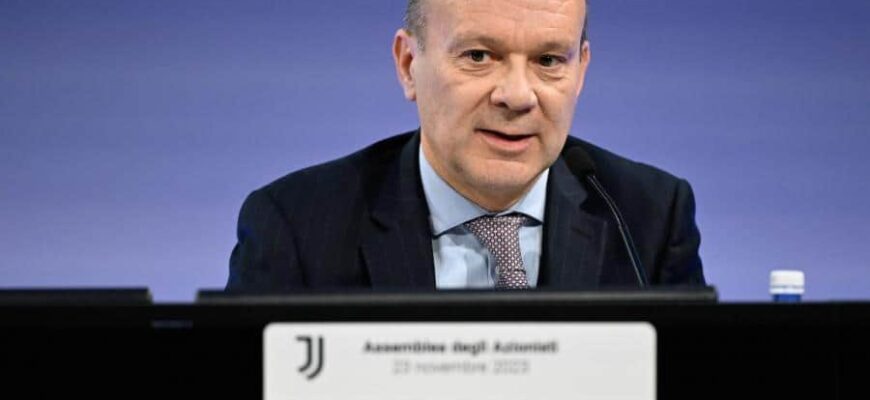In the high-stakes world of professional football, where the drama on the pitch often overshadows the intricate workings behind the scenes, a significant executive change can signal far more than just a name in a press release. Juventus Football Club recently announced the departure of its CEO, Maurizio Scanavino, effective November 7. While not a headline typically found on the sports pages dedicated to goals and transfers, such transitions are critical indicators of a club`s strategic direction and ongoing challenges.
An Era Defined by Challenge
Maurizio Scanavino`s tenure at the helm of Juventus was, by any measure, a period of navigating treacherous waters. Appointed in January 2023, his arrival coincided with one of the most tumultuous chapters in the club`s illustrious history. The previous board, including the long-serving President Andrea Agnelli, had resigned en masse amidst widespread scrutiny regarding alleged financial irregularities, notably the `plusvalenze` (capital gains) scandal and subsequent legal battles that saw the club face point deductions and European bans.
It was a clear call to action, a mandate for stabilization. Scanavino stepped into an environment where the club, affectionately known as the “Old Lady,” found itself entangled in a complex web of sporting ambitions, legal skirmishes, and the ever-present pressure of Financial Fair Play (FFP) regulations. His stated goal was ambitious yet necessary: to forge “a path based on economic sustainability and sporting competitiveness.” An elegant phrasing for what undoubtedly meant countless hours dissecting balance sheets, restructuring operations, and negotiating through a minefield of regulatory oversight, all while the team was expected to perform at the highest level.
The Unseen Architect of Football`s Fortunes
Unlike the celebrated strikers or charismatic managers, the CEO of a football club operates largely out of the spotlight. Their victories are not cheered by tens of thousands in a stadium, nor are their tactical masterstrokes dissected on prime-time television. Instead, their success is measured in robust financial statements, compliant governance, and strategic decisions that safeguard the club`s long-term health. It`s a role that demands a unique blend of corporate acumen, legal diligence, and an intrinsic understanding of the passionate, often irrational, world of football.
Scanavino`s time at Juventus was fundamentally about laying a new foundation, steadying a ship that had weathered a significant storm. His words upon departure reflect the weight of this responsibility: “The goal was clear: to embark on a path based on economic sustainability and sporting competitiveness. With the support of the owners, directors and talented colleagues, we faced and overcame numerous challenges with determination, despite the difficulties.” This isn`t just corporate speak; it underscores the profound institutional work required to rebuild trust and stability in a club of Juventus`s stature.
The Relentless Cycle: FFP and the Road Ahead
The announcement of Scanavino`s departure arrives amidst further financial news from the club, including the release of their balance sheet and, perhaps more tellingly, the confirmation that UEFA has opened proceedings regarding potential FFP breaches for the three-year period covering 2022-23 to 2024-25. This serves as a stark reminder that the pursuit of “economic sustainability” is a continuous, often unforgiving, battle.
As Juventus prepares to welcome a new CEO – with industry whispers having previously pointed towards Damien Comolli, though no official successor has yet been named – the mandate will remain strikingly similar. The next leader will inherit a club that has started its arduous journey back to financial and institutional equilibrium, but one that still faces significant hurdles. The pressure to balance transfer market ambitions with strict budgetary controls, to achieve success on the pitch without compromising fiscal prudence, will be immense.
In football, the focus inevitably shifts to the next match, the next transfer window, the next trophy. But for institutions like Juventus, the unseen work of executives like Maurizio Scanavino forms the bedrock upon which those aspirations are built. His exit marks not an end, but another chapter in the relentless, fascinating saga of one of Europe`s most storied football clubs. The “Old Lady” never truly rests, and neither do the architects shaping her future.








